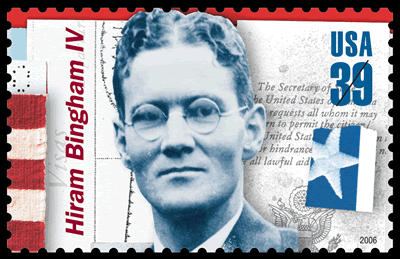American Disunion: Forsaking a Founding Truth
In 1955, I was one of scores of kids waiting outside Charles Andrews Elementary School for the new polio vaccine. Parents clamored for it, fearful their children would otherwise contract this paralyzing disease. Politics played no discernible part in parents’ decisions.
In 2021, much of the pushback against vaccination for COVID is fueled by politics. Rather than uniting against a deadly disease, Americans are divided.
Many Americans live in economic, electronic, political and geographic “gated communities” which they’ve chosen. These enclaves weaken the nation whose love of freedom made them possible. Our Great Seal’s motto “Out of many, one” seems now just a platitude. “I’m one – and the one that counts” seems to have replaced it.
Dividing Americans has always been a strategy of those seeking power. The only difference now is the proliferation of tools available. Political consultants, disinformation campaigns, talk radio and cable outlets segment the nation. Micro-targeting and social media algorithms give people more of what they like and foster groups of like thinkers, segregated from contrary facts.
Many want to live where neighbors think just like them. Public spaces shrink as private ones multiply. Activities that before put us into contact with those who are different have diminished due to changes as varied as remote work, mail voting, online shopping and video streaming. The re-segregation of many public schools, the lack of affordable housing in many urban communities and the growing wealth and income gap have enabled Americans to live in ideologically and economically different worlds. The all-volunteer military enables most youth to avoid others with different backgrounds, preventing them from realizing how much they have in common.
These trends don’t worry most Americans who see a unified nation as essential only if we’re attacked. Individual freedom is what they value. Anyone urging action for the public good requiring sacrifice of private benefits is seen as attacking “my rights.” In our historical amnesia, we forget that this logic is the opposite of those who created the United States.
After the Revolutionary War, our new nation began coming apart. Assuming they could now safely ignore Benjamin Franklin’s 1776 admonition that “we must hang together or, assuredly, we shall hang separately,” newly independent states looked to their own interests. Many viewed a weak national union as essential for freedom. Protests against government, foreign scorn at American weakness and economic policies aimed at filling the coffers of individual states at the expense of their neighbors followed.
That our Constitution sought a stronger national union emerged from this chaos, thanks to patriots who had a national perspective. George Washington, for example, learned the necessity of a strong union after leaving Mt. Vernon and serving in the field throughout the war. He had to work with Congress and negotiate with foreign powers. In contrast, Thomas Jefferson never left Virginia, thus finding it easier to remain steadfast in believing individual freedom didn’t need a strong union.
We don’t realize that individual and states’ rights are the fruits of national union. How free would we be if there was no national government that marshaled funds and expertise to deal with natural disasters, pandemics, terrorism, old age, health care, international trade and infrastructure, not just national defense? Some of the loudest critics of the national government, in fact, benefit most by the redistribution of tax revenue from the wealthiest to the poorest states.
Washington, in his Farewell Address, warned of the danger we still face: “The unity of government . . . is a main pillar in the edifice of your real independence,” he said, and hoped citizens would respond to efforts to weaken the union by “indignantly frowning upon the first dawning of every attempt to alienate any portion of our country from the rest, or to enfeeble the sacred ties which now link together the various parts.”
The Declaration of Independence referred to the “united States,” a clear reference to state over national sovereignty. The Constitution referred to the “United States,” even if it took the Civil War to make the union a reality. Without national unity, we would never have survived the Great Depression, two world wars and, most recently, the Great Recession. Yet many persist in believing national unity is a luxury not the foundation of a great nation and individual well-being.
In 1830, James Madison, another nationalist and “Father of the Constitution,” penned lines he wished to leave the nation upon his death, which came in 1836. He called it “Advice to My Country,” and he closes with this:
“The advice nearest to my heart and deepest in my convictions is, THAT THE UNION OF THE STATES BE CHERISHED AND PERPETUATED. LET THE OPEN ENEMY TO IT BE REGARDED AS A PANDORA WITH HER BOX OPENED, AND THE DISGUISED ONE AS THE SERPENT CREEPING WITH HIS DEADLY WILES INTO PARADISE.”
We may ignore America’s disunion, but we do so at the expense of our collective and individual futures.
Photo Credit: Political cartoon published in 1754 and attributed to Benjamin Franklin, arguing for unity among North America’s British colonies. Source: commons.wikimedia.org







